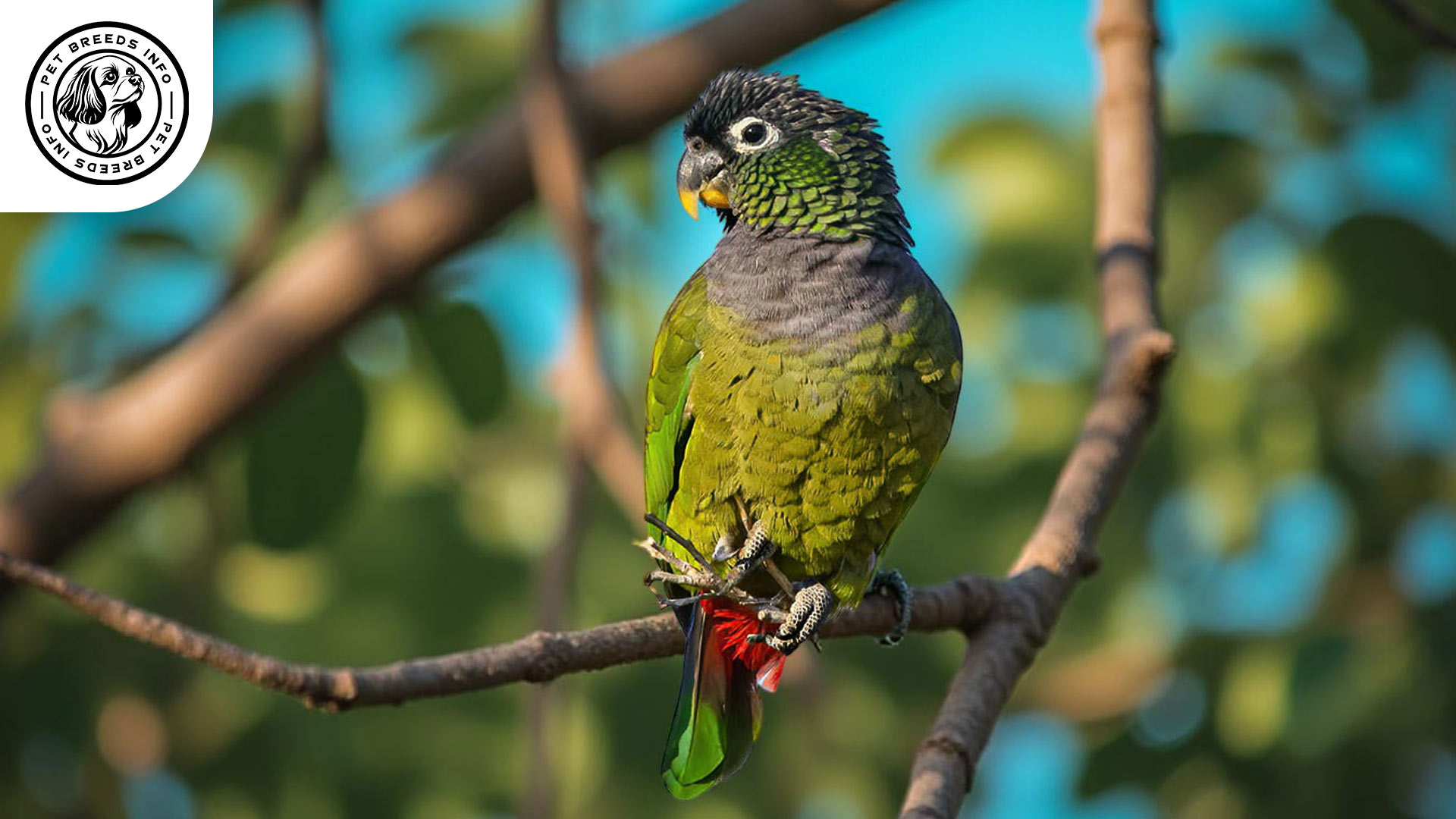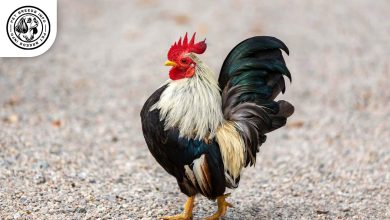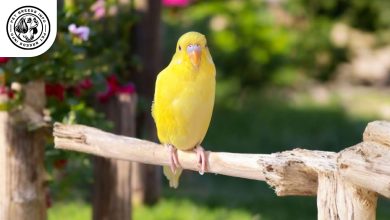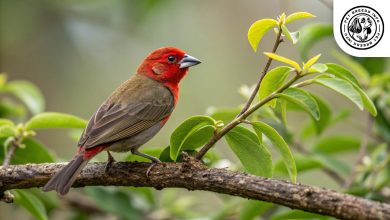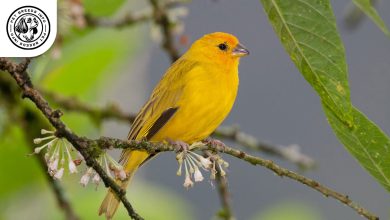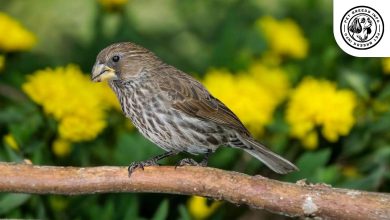Scaly-headed Parrot Bird: Bird: Personality, Lifespan, Food & Care
General Introduction of the Breed
The Scaly-headed Parrot (Pionus maximiliani), also known as Maximilian’s Pionus, is a medium-sized parrot native to South America. It is commonly found in countries such as Brazil, Argentina, Paraguay, and Bolivia. This species is well-loved for its gentle nature, intelligence, and adaptability.
The Scaly-headed Parrot has been admired in aviculture for many years due to its calm demeanor and striking appearance. While not as widely known as some other parrot species, it has gained popularity among bird enthusiasts seeking an affectionate and low-maintenance companion.
Table of Contents
| Common Name | Scaly-headed Parrot, Maximilian’s Pionus |
| Scientific Name | Pionus maximiliani |
| Origin | South America (Brazil, Argentina, Paraguay, Bolivia) |
| Size | Medium-sized, around 11 inches (28 cm), 200-250 grams |
| Lifespan | 25 to 30 years |
| Talking Ability | Can learn simple words and tricks, but not as vocal as some other parrots |
| Colors | Mostly green plumage with scaliness on the head, bluish throat and underparts, red markings under tail feathers |
| Noise Level | Relatively calm, less prone to excessive screaming |
| Social Behavior | Gentle, affectionate, forms strong bonds, generally good with children and other pets if socialized |
Physical Characteristics
The Scaly-headed Parrot is a medium-sized parrot, typically measuring around 11 inches (28 cm) in length and weighing between 200 to 250 grams. Males and females are similar in size and appearance.
The bird’s plumage is mostly green, with subtle scaliness on the head, giving it its distinctive name. It has a bluish tint on the throat and underparts, while its tail feathers exhibit red markings underneath. The eyes are dark brown, framed by white feathering.
It possesses a short, curved beak that is pale in color, which aids in cracking seeds and nuts. The tail is relatively short and squared, unlike the long, pointed tails seen in some other parrot species.
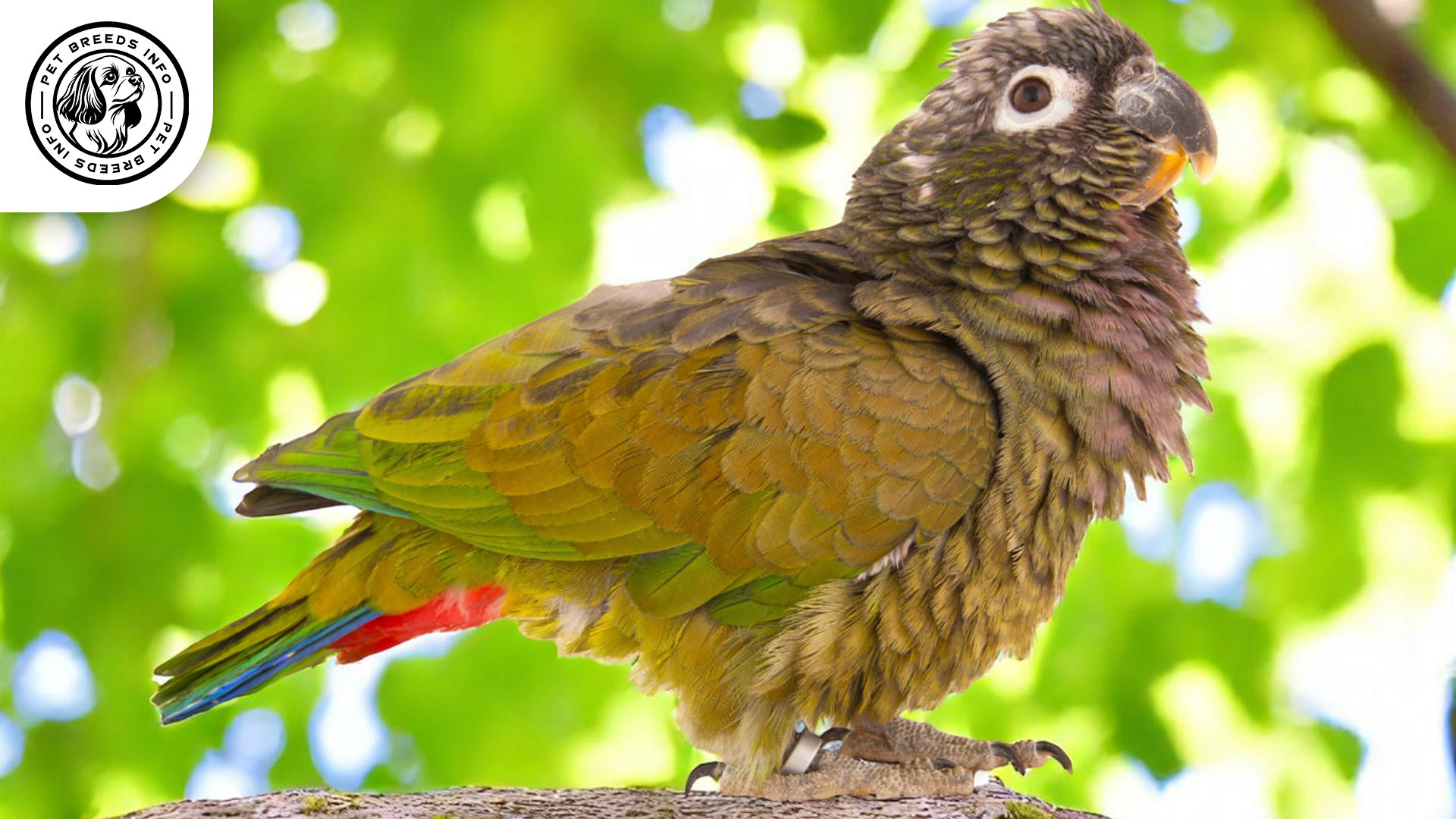
Personality and Temperament
The Scaly-headed Parrot is known for its gentle and affectionate personality. It is intelligent and can be trained to learn simple words and tricks, although it is not as vocal as some other parrots.
This breed is moderately active and enjoys playtime and mental stimulation. It forms strong bonds with its owner and can be loyal and affectionate but does not demand constant attention like some other parrot species.
It is generally good with children and can coexist with other pets if properly socialized. However, it may be a bit shy at first and take time to warm up to new people or environments.
Unlike some high-energy parrots, this species is relatively calm and less prone to excessive screaming, making it a good choice for those looking for a quieter pet.
Read More: Rainbow Lorikeet Bird
Care and Maintenance Requirements
The Scaly-headed Parrot requires a spacious cage with room for movement and toys for enrichment. Daily social interaction, playtime, and occasional flight opportunities outside the cage are essential for its well-being. This species thrives in moderate temperatures and should be protected from extreme heat or cold. Humidity levels should be maintained at a comfortable range to prevent feather and respiratory issues.
Grooming needs include occasional misting or bathing to keep the plumage clean, regular nail trimming, and beak maintenance through chew toys. A clean cage and proper hygiene help prevent health problems.
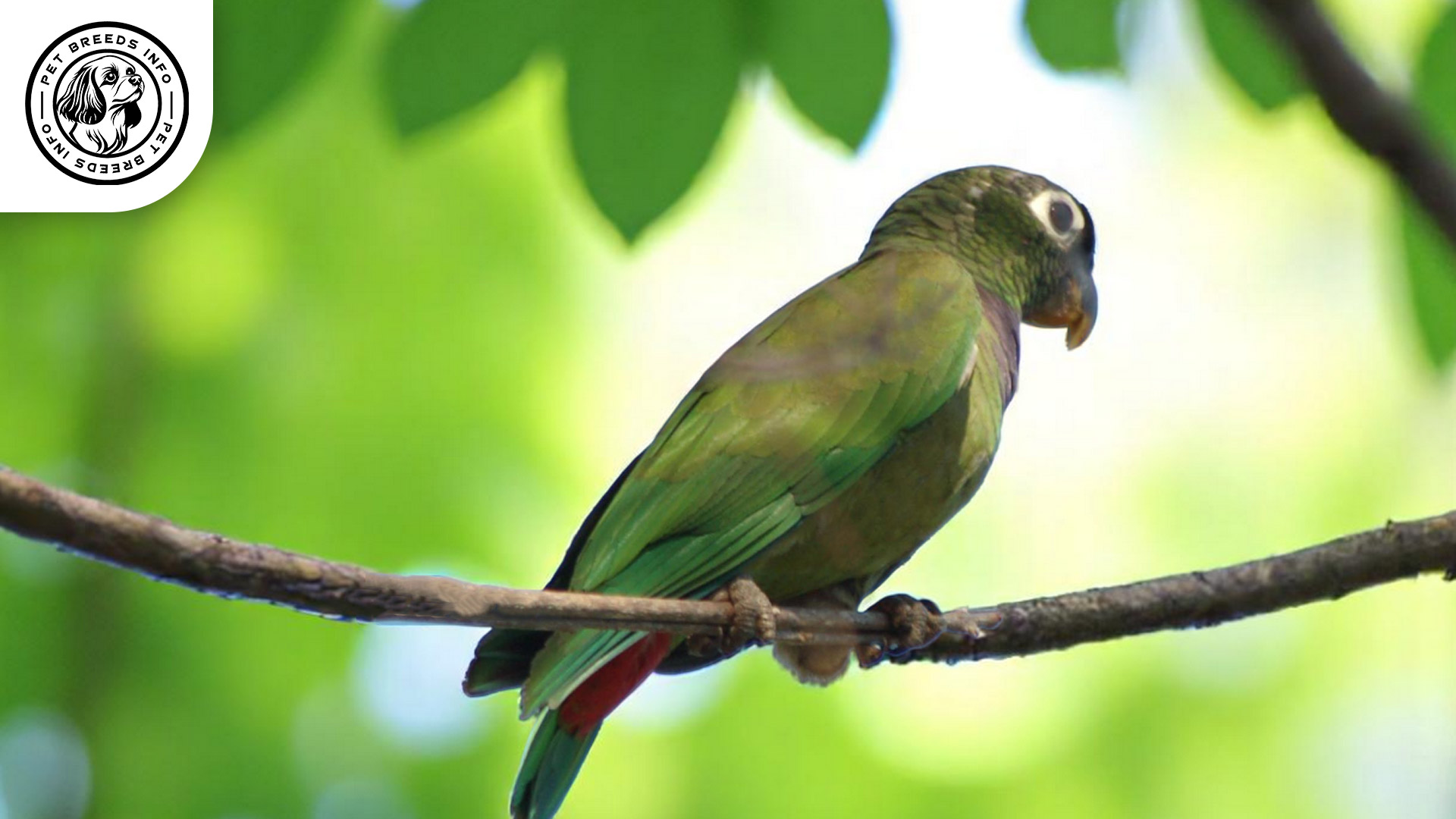
Diet and Nutrition
A well-balanced diet consists of high-quality pellets, fresh fruits, vegetables, and occasional seeds and nuts. Too many seeds can lead to obesity, so they should only be given as treats.
Avoid feeding avocados, chocolate, caffeine, alcohol, and onions, as these are toxic to birds. Fresh, clean water should always be available. Portion sizes should be moderate, and food should be provided twice a day to maintain a healthy diet.
Health and Common Medical Issues
The average lifespan of a Scaly-headed Pionus is around 25 to 30 years with proper care. Common health concerns include respiratory infections, fungal infections, vitamin A deficiency, and obesity if fed an unhealthy diet. Regular veterinary check-ups, a balanced diet, and a clean living environment help prevent these issues. Recommended vaccinations and parasite control should be discussed with a qualified avian veterinarian.
Training and Behavior Management
This parrot is relatively easy to train due to its intelligence. Positive reinforcement techniques, such as treats and praise, work best. Early socialization helps prevent shyness and fearfulness. Consistent training is needed to prevent unwanted behaviors such as biting or excessive chewing. Using interactive toys and puzzles can keep the bird engaged and mentally stimulated.
Read More: Plum-crowned Pionus Bird
Interaction with Other Animals and Humans
The Scaly-headed Parrot is known for its friendly and social nature. It enjoys interacting with its human family and can bond well with children.
If introduced properly, it can coexist peacefully with other birds and pets. However, supervision is needed when interacting with larger animals.
It is suitable for both individuals and families, especially those looking for a relatively low-maintenance parrot that is affectionate but not overly demanding.
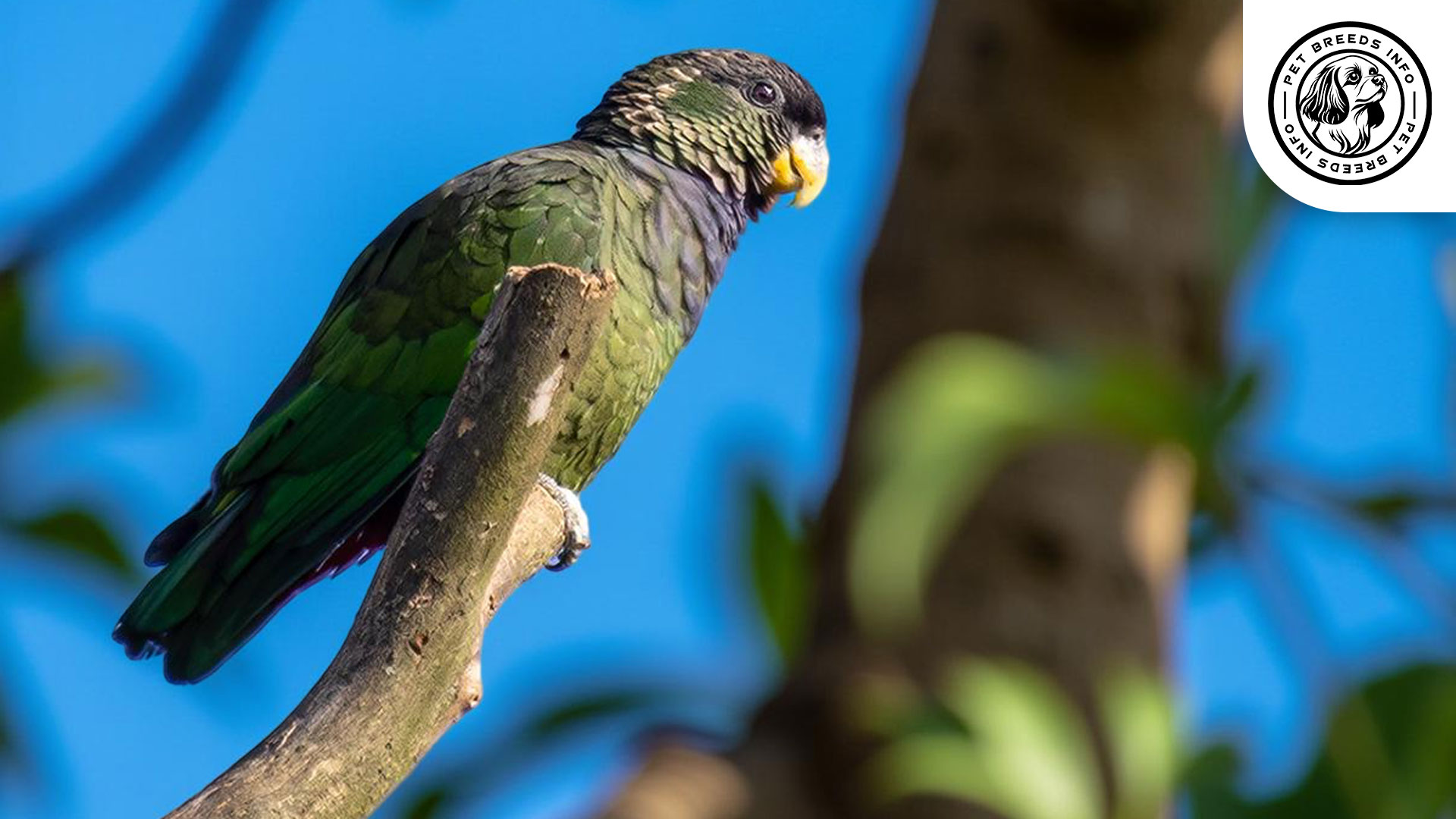
Price and Availability
The price of a Scaly-headed Parrot can range between $500 to $1,500, depending on the breeder and location. Potential owners are advised to purchase from reputable breeders or consider adoption from bird rescue organizations. When selecting a bird, look for signs of good health, such as clean feathers, bright eyes, and an active demeanor.
Conclusion and Final Thoughts
The Scaly-headed Pionus is a wonderful choice for bird lovers seeking a friendly, well-mannered, and relatively quiet parrot. Its gentle nature makes it ideal for families, individuals, and even beginner bird owners. With proper care, a balanced diet, and regular social interaction, this parrot can live a long and healthy life as a cherished companion. Prospective owners should ensure they are ready to commit to the bird’s long lifespan and social needs before bringing one home.
Read More: Purple-naped Lory Bird
FAQ
How loud is their typical call?
Moderately loud; quieter than larger parrots but not silent. They make chirps and whistles.
Do they mimic well?
Can learn simple words but aren’t known for extensive mimicking abilities.
Are they prone to feather plucking?
Can occur if their needs for stimulation and interaction aren’t met.
What’s their activity level?
Moderately active; enjoy climbing and supervised playtime.
Male vs. female personality differences?
No significant differences are widely documented.
